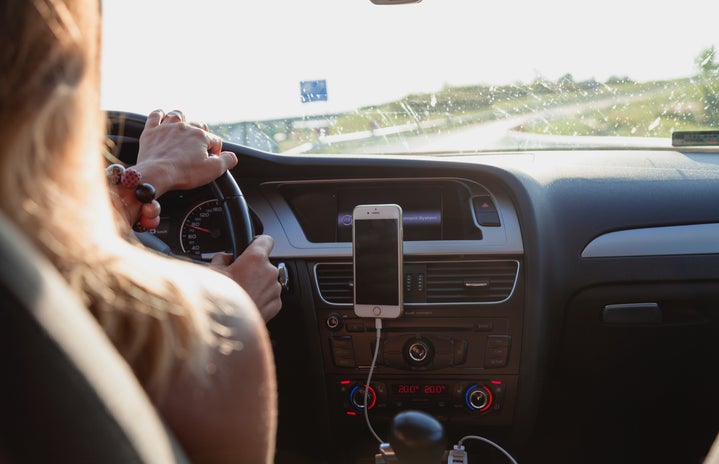Distracted driving. It’s not a new issue, but it is much more prevalent in today’s society than it has ever been before. Whether due to the effects of alcohol, or the seemingly harmless glow of a notification on the phone, too many have suffered the consequences of taking their eyes off the road. As these tragedies occur and are reported more frequently, state legislatures have gone to great lengths to update the law on distracted driving.
Courtesy: Giphy
Across the country, many places have enacted change in their legislation about texting and driving – the state of Florida included. In cases of over 50,000 car accidents in 2016, distracted driving was to blame. This statistic, among others, motivated the signing of multiple bills that acted as precautionary measures into laws by Governor Ron DeSantis. As recently as this past summer, on July 1st, 2019, a new part of the law came into effect, stating that an individual who is pulled over by law enforcement for texting and driving is considered to have committed a primary offense.
Courtesy: Auto Guide
Florida took it one step further this past week on October 1st, 2019. The new ‘hands-free’ portion of the texting and driving law bans the handheld use of any cellular device while in a school or construction zone. This doesn’t mean that you can’t answer a phone call, though. Individuals answering their phones while in a school or construction zone must be mindful about whether the phone is physically in their hands – it is in the driver’s best interest to utilize a cupholder or invest in a phone grip if picking up is necessary. If a driver is stopped at a stoplight or the vehicle is not in motion, then having the phone in your hand is permissible. In this day and age, what may seem like such a nonthreatening action – holding your phone to your ear to answer a call – is still a risk. And it’s a risk that the state of Florida has decided not to take.
Courtesy: Virtual Drive of Texas
For now, drivers caught in the act will receive warnings. Starting January 1st, 2020, however, tickets and fines will be issued by law enforcement. No one picks up their phone with the intention to be so distracted that they cause a fatality – it is such a mindless action, after all. That is why this grace period will exist until the start of the new year. Inconvenient as it may seem, Florida is committed to cracking down on texting driving, if not only to make the roads a safe place for everyone.
Courtesy: Giphy
While the main complaint seems to be that this new element of the law is too strict, victims of distracted driving have spoken out saying that it isn’t strict enough. Requiring drivers to be ‘hands-free’ at school and construction zones is a good step, but some would like to see it implemented everywhere. In an interview with WTSP News, the Scherer family, who lost their son to a distracted driving incident, maintain that “people have to…understand that they’re not invincible and that anything could happen to anyone at any time.” They encourage the safety of not only school and construction zones, but all roads everywhere in the state of Florida.
Courtesy: Napolinlaw
As Florida makes efforts to improve and enforce the texting and driving law, it is important that drivers do their part and commit to staying focused when behind the wheel. When you choose to operate a motor vehicle, remember to do so responsibly and with caution. It is the hope of many that going forward, the ‘hands-free’ law will allow for a safer experience on the roads.
Courtesy: Giphy
Want to see more HCFSU? Be sure to like us on Facebook and follow us on Instagram, Twitter, and Pinterest!



